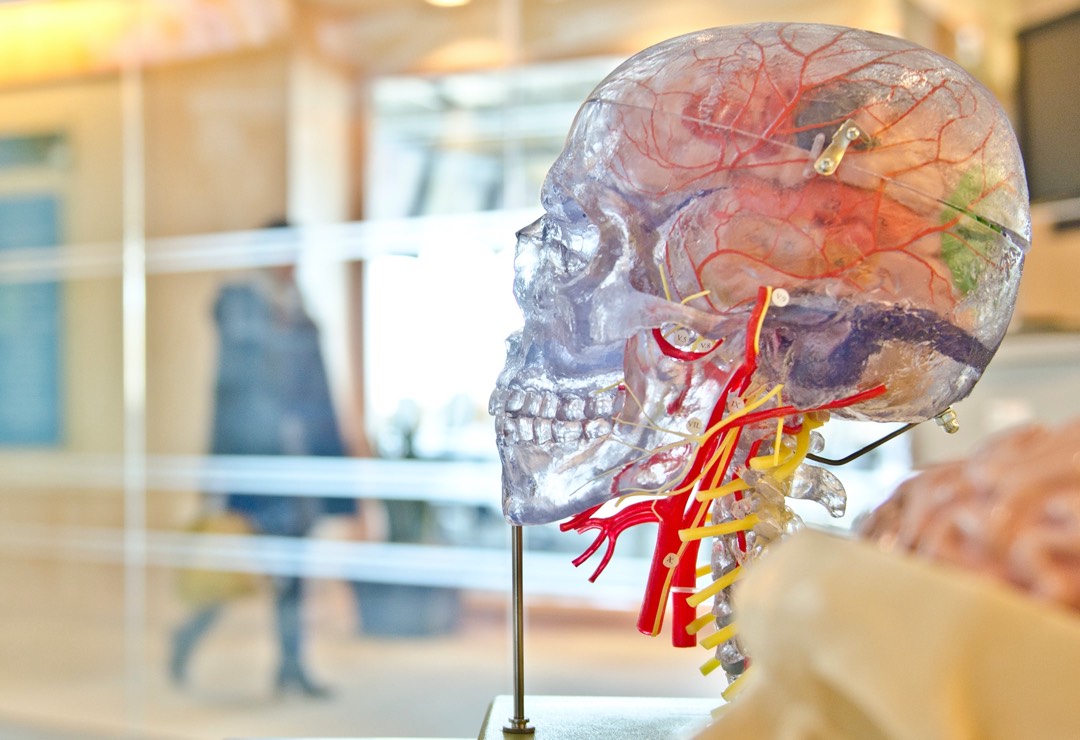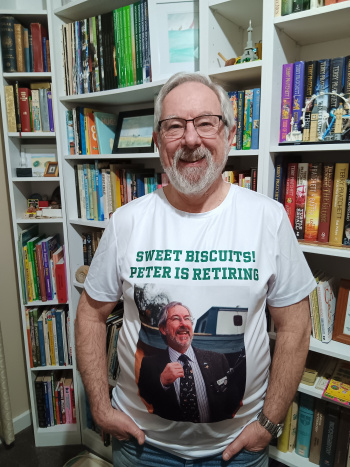
South Australian Science Teachers Association
Reflections from Retired Science Educators
Posted by SASTA
on 28/06/2024

Peter Walwyn
Imagine walking into a classroom where the only AV equipment available was a blackboard and some white chalk, and the only method of producing printed notes for a class of 35 secondary school students was using a spirit duplicator. This was the scenario when I began my career teaching in New Zealand. I moved there at the start of 1980 for “a year’s experience and some travel”, only to stay there for 23 years. There was a lot of experience and not enough travel.
At the start of the 80’s, technology was primitive by today’s standards. There was no widespread use of video tapes in classrooms, it was pre-personal computers, and pre mobile phones. If there was a useful film that could be shown to the class, the “AV Room” had to be booked. Facts could be checked in the library’s Encyclopedia, not online, so you had to know your stuff.
As a teacher of Science, I recall that there were more opportunities for classes to participate in some memorable experiments. It was not uncommon for classes to be involved in reducing “red lead” oxide (highly toxic), blood typing (students’ blood, of course), dissections, and all sorts of other unforgettable activities that are now considered dangerous in the classroom. There was no consideration of risk assessments beyond common sense, and “PPE” sometimes meant a bar of soap for washing your hands after the lesson.
At the end of each year, 3 hour written exams were the only yardstick against which the whole year’s work was measured. There was no online work and no internal assessment. If a student had a bad day, they could face the possibility of having to repeat the course – even from Year 10.
At the end of 2023 I decided that it was a good opportunity to retire from full-time teaching, though I still enjoy the contact in the classroom when I do any relief work. Before I finished, I was happily using touchscreens instead of blackboards, all my lesson plans were online (thanks, SEQTA), and there was not a printed mark book in sight. I guess it is possible for an old dog to learn new tricks.
As a product of the advances in IT, the profession and the expectations placed on teachers and students have evolved hugely in the past 43 years. I admire and respect anyone who has chosen this career and I hope that they will find it as enjoyable and rewarding as I have.
Peter Walwyn
Retired Teacher of Science and Biology, most recently at Westminster School
Bronte Nichols
A career as an Earth Science educator
In 1987, I graduated with a Bachelor of Education majoring in Geology and Biology from the University of South Australia Salisbury Campus where my mentors, Ian Clark, Barry Cook, Haggis Shackleton, and John Cann helped me develop the skills and knowledge I needed to be an effective Earth Science teacher. The numerous field trips which were part of the Geology program gave me the confidence and knowledge to run my own. So, in 1988, I took my first group of Year 12 Geology students ‘out bush’ to the Far North of South Australia, visiting the newly opened Olympic Dam Mine and the Northern Flinders Ranges. This was to become my standard field trip over the next 30+ years!

1991 – Year 12 Geology field trip - Underground at Olympic Dam mine observing the primary crusher
The start of a life-long adventure
In 1992, I was awarded an Australian Science Teachers Association/ CRA Fellowship which allowed me to travel to the UK and attend the International Conference on Geoscience Education and Training in Southampton in 1993. This is where I met and formed lifelong friendships with Geoscience educators from around the world. I also dropped in on last operating tin mine in Cornwall and much to my surprise, was invited to join the mine geologist underground on his shift something that would be unheard of now.

1993 - Bronte and Mike Hodgson, mine geologist, South Crofty tin mine, Cornwall
I have been able to remain in contact with many participants from that first GeoSciEd conference which evolved into the formation of the International Geoscience Education Organisation (IGEO) and I still look forward to reunions and meeting new people every four years. Thanks to the hard work of conference organisers, these events have provided opportunities for me to travel to places that I thought I would only ever read about in textbooks and dreamed about visiting. The photos and stories from these experiences brought life to my teaching and inspired my students to visit these places and discover for themselves the amazing planet we live on.

1997 - Conference field trip: GeoScied II, Hilo, Hawaii

1997 – Bronte out on the Kilauea lava flow

2003 - Post-conference field trip GeoSciEd IV: The Burgess Shale, Canada
My role as a Senior Officer with IGEO from 2004 - 2018 enabled me to be involved in several international initiatives, including the International Earth Science Olympiad. I was concerned that Australia was not participating in this event, so in 2011, I entered a team comprising students the Australian Science and Mathematics School which is where I was working at the time. With generous sponsorship from a range of organisations and companies, we were able to send a team to Italy. I repeated the process in 2012, this time with the help of my colleague Wally Pillen who had a Geology program running at Yankalilla Area School. So, with two students from both schools, we headed off to Argentina.

The 2012 Australian IESO team, pre-departure, Adelaide airport
One of my proudest achievements has been negotiating with Australian Science Innovations (ASI), who run the Physics, Chemistry and Biology Olympiad programs in Australia, to take on the Earth Science Olympiad and in 2015, the first ASI sponsored team attended the IESO in Brazil. The Australian program is now fully established and in its 10th year.

2015 – Stage 2 Geology Field trip – the Golden Spike, Brachina Gorge, Flinders Ranges
The introduction of the Australian Curriculum, Earth and Environmental Science in 2018 replaced Geology in the senior curriculum. My last SACE Geology field trip was in 2017 to the Flinders Ranges and thanks to Jim Gehling, my class was able to spend a whole day out on the Nilpena Fossil fields observing the various rock layers and fossils within. As one of the writers of this new curriculum I was keen to have a go at teaching the course but had to wait until 2022 to teach the Stage 2 course to the first group of Year 12 students at Adelaide Botanic High School. The Stage 2 2023 cohort was my last year teaching.
What has changed over the past 40 years?
For me, the main change in Earth Science teaching has been the requirements for conducting field trips. Since the 1990’s, changes in Workplace Safety have made it difficult, if not impossible to take class groups underground at operating mines. Open cut/sand mines can still be an option with appropriate personal protective equipment and a willing company! Many of my past students have gone into the resource industry in roles from Mining Engineering to Environmental monitoring and Water Resource management, and it is important students can see these people performing these different roles. Having my bus license made long field trips affordable for students and gave me much more flexibility in itinerary, however changes to OHWS for remote travel and camps make conducting field trips more of a challenge. Effective and engaging Earth Science learning requires students to observe natural phenomenon in the field and can be in their or the school’s back yard, or on extended field trips. This is what makes teaching Earth Science so unique and enjoyable and is something I will miss!
The Future
Adelaide will be hosting the 10th GeoSciEd Conference. I hope that you will be able to join Earth Science Educators from around the world 14 – 16 August 2026!
 Sheryl Hoffmann
Sheryl Hoffmann
After 10 years working in the tertiary education sector, I moved into a secondary school as a laboratory assistant. 18 months later, I moved to another school, where I ended up staying for 31 years. I worked up to Laboratory Manager and a salary that allowed me to retire, which I did at the end of January this year.
I’ve always seen my job as assisting teachers, so they could do the best for their students. To do this it was important to continuously learn and network with like-minded colleagues. I enjoyed many SASTA Annual Conferences and used 14 CONASTA’s to travel around Australia.
In 2001, I was cajoled to present a workshop for CONASTA in Sydney, primarily so that there was something on the program for laboratory assistants. I found I really enjoyed sharing my knowledge and that I had something unique to offer. My handout was uploaded to the conference website and from there ERIC (an online library of the US Department of Education) sort my permission to include my handout in their library. In addition, three Australian universities also asked permission to share the resource with their students. That was the start of many years of presenting workshops. I even got to present at a World Conference when ICASE was in Perth, in 2007. Another highlight was assisting on the organising committee of the 2014 CONASTA in Adelaide. That was an amazing conference, as was my final CONASTA in Adelaide in 2023.
Now that I have retired, I have the freedom to slow the pace of life and spend time doing whatever I want, it is sheer bliss. I’ve started new hobbies (competition photography), got reacquainted with old ones and enjoyed travelling within SA, again. I’ve enjoyed events during weekdays (eg first ever public tour of Minchin House) and I have the energy to enjoy weekends away (Mannum, Pt Elliot, Hahndorf & Whyalla). I even crossed off several bucket list items: seeing the Aurora Australis (& in SA!), piloting a paddle-steamer and seeing the giant cuttlefish aggregation from a glass bottom boat. I also have a ticket to a Panda VIP, where I will go behind the scenes and meet Wang Wang and Fu Ni, before they are returned to China.
If I was to give one piece of advice to early career teachers, it would be to make friends with their laboratory manager and to keep listening to and learning from your colleagues.
Archive
- February 2026
- January 2026
- December 2025
- November 2025
- October 2025
- September 2025
- August 2025
- July 2025
- June 2025
- May 2025
- April 2025
- March 2025
- February 2025
- January 2025
- December 2024
- November 2024
- October 2024
- September 2024
- August 2024
- July 2024
- June 2024
- May 2024
- April 2024
- March 2024
- February 2024
- December 2023
- November 2023
- October 2023
- September 2023
- July 2023
- June 2023
- May 2023
- April 2023
- March 2023
- February 2023
- January 2023
- December 2022
- November 2022
- October 2022
- August 2022
- July 2022
- June 2022
- May 2022
- April 2022
- March 2022
- February 2022
- January 2022
- December 2021
- November 2021
- October 2021
- September 2021
- August 2021
- July 2021
- June 2021
- May 2021
- April 2021
- March 2021
- February 2021
- January 2021
- December 2020
- November 2020
- October 2020
- September 2020
- August 2020
- July 2020
- June 2020
- May 2020
- April 2020
- October 2018
- September 2018
- August 2018
- July 2018
